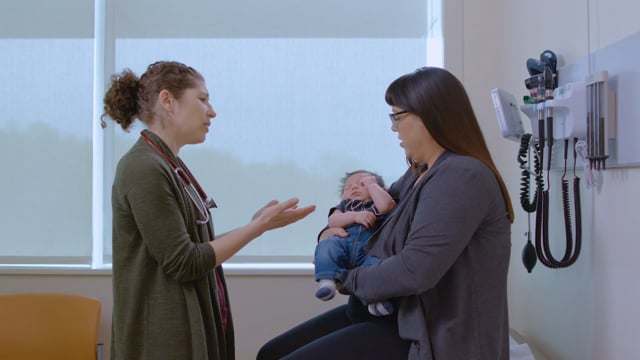Your Child's Vaccines: Chickenpox Vaccine
What Is the Chickenpox/Varicella Vaccine?
The varicella vaccine protects against chickenpox (varicella), a common and very contagious childhood viral illness. It also protects against shingles. It is a live attenuated vaccine, which means it contains a weakened form of the virus.
When Do Kids Get the Chickenpox Vaccine?
Kids get the varicella vaccine when they're between 12 and 15 months old. They get a booster shot for further protection at 4 to 6 years of age.
Kids who are older than 6 but younger than 13 who have not had chickenpox or the vaccine should get the 2 doses given 3 months apart. Kids 13 years or older should get their 2 vaccine doses 1 to 2 months apart.
Kids can get the varicella vaccine at the same time as other vaccines. Sometimes it's given to kids up to 13 years old in combination (in the same shot) with the vaccine for measles, mumps, and rubella in a vaccine called MMRV.
Why Is the Chickenpox Vaccine Recommended?
Chickenpox used to be common in the U.S., causing many hospitalizations and even deaths. Since the vaccine was introduced in 1995, it has prevented millions of infections every year. It prevents severe illness in almost all kids who are vaccinated. It's also very effective in preventing mild illness. Vaccinated kids who do get chickenpox generally have a mild case.
If a person with no immunity to the virus is exposed to someone with chickenpox or shingles, they are likely to get infected because the virus is so contagious. Giving the vaccine within 3 to 5 days after exposure can help to prevent the infection or make it less serious.
What Are the Possible Side Effects of the Chickenpox Vaccine?
Possible mild effects are pain, redness, or swelling where the shot was given. Some kids have a fever, and there is a very small risk of febrile seizures, especially after vaccination with MMRV. As with any vaccine, there is a small risk of fainting, and a very small chance of an allergic reaction.
A very mild chickenpox rash can happen up to 1 month after the shot. It may last for several days but will clear up on its own without treatment. While the rash is still there, the virus can spread to someone who isn’t immune to chickenpox. So while someone has a rash, they should stay away from infants and people with a weak immune system. There is a very small risk of getting shingles years after getting the varicella vaccine, but this is much less common than getting it after having had chickenpox.
When to Delay or Avoid the Chickenpox Vaccine
Simple colds or other minor illnesses should not prevent vaccination. Your doctor might reschedule the vaccine if your child has a more serious illness.
Talk to your doctor about whether the vaccine is a good idea if your child:
- ever had a serious allergic reaction, or any allergic reaction to an earlier dose of varicella vaccine or its components, which include gelatin and the antibiotic neomycin
- has a disorder that affects the immune system (such as cancer)
- is getting steroids or other medicine that weakens the immune system (including chemotherapy or radiation therapy)
- has a sibling or parent who was diagnosed with an immune system problem
- takes aspirin. People who take aspirin should stop for 6 weeks after getting the chickenpox vaccine.
- has gotten any other vaccines in the past month or blood products in the past few months (such as from a transfusion)
- has tuberculosis
The doctor may choose not to give the vaccine or to postpone it, or they may decide that the benefits of vaccinating your child outweigh the potential risks.
Pregnant women should not get the chickenpox vaccine until after they give birth.
Caring for Your Child After the Chickenpox Vaccine
Check with your doctor to see if you can give either acetaminophen or ibuprofen for pain or fever and to find out the right dose.
A warm, damp cloth or a heating pad on the site of the shot may help reduce soreness, as can moving or using the arm or leg.
When Should I Call the Doctor?
Call your doctor if:
- You aren't sure if the vaccine should be postponed or avoided.
- There are problems after the vaccination.

How Vaccines Help
Vaccines keep millions of people healthy each year by preparing the body to fight illness. Learn how vaccines help and get answers to your biggest questions about vaccines.
Reviewed by: Elana Pearl Ben-Joseph, MD
Date Reviewed: Jun 10, 2024
















